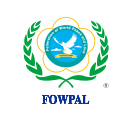Speech in the 2018 World Peace and Love Conference presented by H.E. Mr. Lot Dzonzi
H.E. Mr. Lot Dzonzi
Deputy Permanent Representative of Malawi to the UN
Thank you so much, Excellencies. If you Google Malawi, you will discover that Malawi is called the warm heart of Africa. That’s who we are. This is a very beautiful interaction. I sit in many meetings in this complex. I listen to many speeches, and this afternoon I thought I should prepare a different speech from what you would commonly hear. I have never met any person, irrespective of race, gender, religious persuasion, culture, or geographical origin, that does not love the rainbow. Whenever a rainbow appears in the sky, we all pause to admire its beauty, to admire this wonder of nature. What makes the rainbow attractive? What pulls us towards it? Is it its beauty? That beauty comes about because of its diversity of colors. You cannot see the beauty of the rainbow if you begin to isolate its colors. Its beauty is embracing. Its beauty is in embracing its diversity and totality.
Yet, that action does not diminish each color. Each color has to shine brightly in its uniqueness. It is in this color’s fostering and promoting every exchange of their colors and brightness that they make the rainbow beautiful. It is time that we learn as humans that the only way we can survive on this planet is by freely expressing who we are, why we embrace and care for each other. In the beautiful game parks of Africa, you will always find the buffalo and the zebra together. Why? The buffalo has poor vision. It is short-sighted. The zebra has a poor sense of smell. The buffalo depends on the zebra to sight predators from afar. The zebra depends on the buffalo to sniff predators hidden in the thickets in that forest. Together, they survive the hazards of the African jungles. I told you I come from Malawi, I did mention Malawi is in Africa, when I started a visit. In Africa, we say when the sun rises, the antelope has got to run. The antelope has got to run and run fast because if it doesn’t run, it will be caught by a lion. In Africa, when the sun rises, the lion has got to run and run fast, because if it doesn’t it won’t catch the antelope.
So if you are an African like me, you have only two options: Either you are an antelope, or you are a lion, and when the sun rises, you will have to run and run fast because if you don’t you will either not have your dinner or you will be somebody’s dinner. Isn’t it time really that we humans learn from nature. We learn that our sustainable survival on this planet, our progress, and our prosperity is dependent on partnership and our peaceful coexistence. As a people, we must for once start living the talk of peace and love, the talk of sustainable development, the talk of partnership, we should begin to live this idea of fostering and promoting free exchanges of human love, allowing each other to pronounce who we are, because when I pronounce who I am, it will not diminish who you are.
At the southern tip of Africa, in South Africa, they say “_“. John Beti of Uganda translated that saying into English saying: I am, because we are. Because we are, therefore I am. Let us embrace our diversity and our differences, our beliefs, opinions, cultures, race, gender, or geographies. Once this is done, we will be at peace with ourselves, and we will begin the task of transforming ourselves in a sustainable way, and taking care of our habitat. There is enough space and resources for all of us, if only we save enough for each other and share. What is the evidence of this? Half of this world is devastated by poverty, hunger, malnutrition, and communicable diseases, while the other half is devastated by obesity, waste, and noncommunicable diseases. If only we could share our involvements, the other half will not suffer from poverty and malnutrition, and the other half would not suffer from obesity, and diabetes and high blood pressure and a lot of waste where they will be dumping it for those suffering from poverty. Thank you.
*Presented in the World Peace and Love Conference at the United Nations on April 5, 2018 in New York
